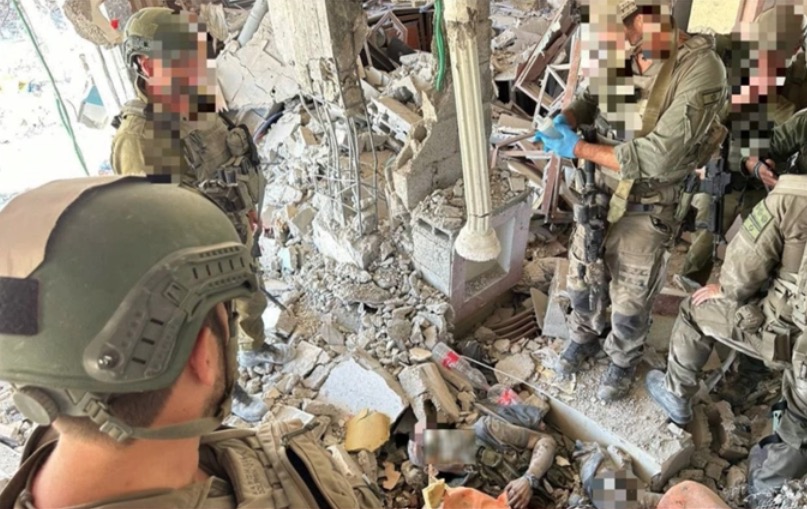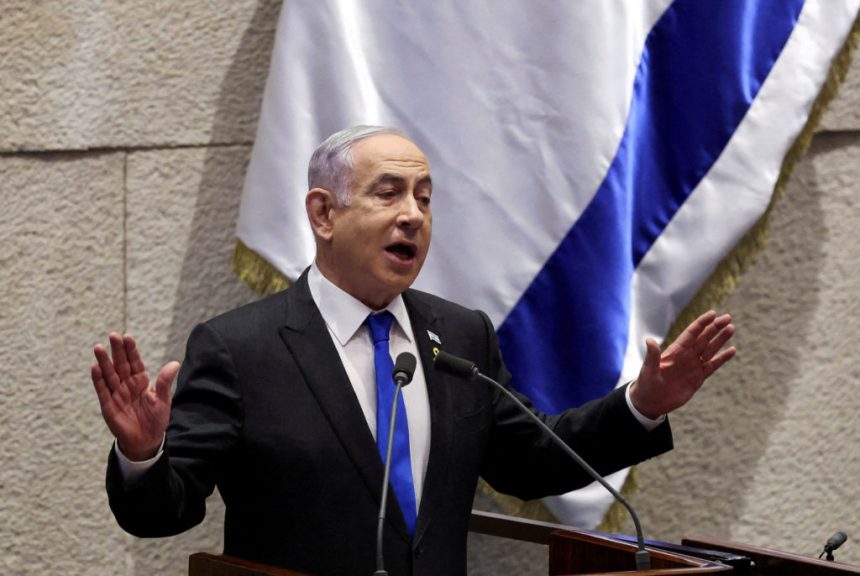In a significant development in the ongoing conflict between Israel and Hamas, Israeli Prime Minister Benjamin Netanyahu announced the elimination of Yahya Sinwar, the chief orchestrator of the devastating October 7 attacks, which left over 1,200 people dead and hundreds taken hostage.
Sinwar, along with two other high-ranking militants, was killed in Rafah by Israeli Defense Forces (IDF) soldiers, marking a turning point in the war that has engulfed the Gaza Strip.
In a message shared on social media platform X (formerly Twitter), Netanyahu addressed the people of Gaza, offering a path to immediate peace.
“Yahya Sinwar is dead. He was killed in Rafah by the brave soldiers of the Israeli Defense Forces. While this is not the end of the war in Gaza, it’s the beginning of the end. To the people of Gaza, I have a simple message—this war can end tomorrow. It can end if Hamas lays down its arms and returns our hostages,” Netanyahu stated.
The capture and release of hostages has become a focal point in the conflict, with Netanyahu confirming that Hamas is currently holding 101 hostages in Gaza, including citizens from 23 countries. He reaffirmed Israel’s commitment to securing their safe return, promising that every effort is being made to bring them home.
Yahya Sinwar is dead.
— Benjamin Netanyahu – בנימין נתניהו (@netanyahu) October 17, 2024
He was killed in Rafah by the brave soldiers of the Israel Defense Forces.
While this is not the end of the war in Gaza, it's the beginning of the end. pic.twitter.com/C6wAaLH1YW
“Hamas is holding 101 hostages in Gaza who are citizens of 23 countries, citizens of Israel, but citizens of many other countries. Israel is committed to doing everything in our power to bring all of them home. Israel will guarantee the safety of all those who return our hostages,” the Prime Minister emphasized.
The Israeli government has taken a hard stance against those involved in the hostage-taking. Netanyahu issued a stern warning to the militants, declaring that Israel would relentlessly pursue anyone who harms the hostages. “Israel will hunt you down and bring you to justice,” he vowed, underscoring the gravity of the situation.
READ ALSO: Trump Accuses Ukraine’s Zelensky of Helping Spark War with Russia
Additionally, Netanyahu linked this moment in the Gaza conflict to broader regional dynamics, particularly the influence of Iran, which has long been accused of backing Hamas and other militant groups across the Middle East. He suggested that the “axis of terror” constructed by Iran was starting to crumble.
Netanyahu also mentioned the elimination of key Hezbollah leaders, including Hassan Nasrallah, further asserting that the reign of terror imposed by Iran’s regime on Iraq, Syria, Lebanon, and Yemen would soon end.
“Nasrallah is gone, his deputy Mohsen is gone, Haniyeh is gone, Deif is gone, Sinwar is gone. The reign of terror that the Iranian regime has imposed on its own people and on the peoples of Iraq, Syria, Lebanon, and Yemen too will come to an end,” he stated, drawing attention to the broader regional implications of the ongoing military actions.
In his message, Netanyahu also appealed to the people of the Middle East, particularly those seeking peace and prosperity, to unite in pursuit of a better future. “All those who seek a future of prosperity and peace in the Middle East should unite to build a better future. Together, we can push back the forces of darkness and create a future of light and hope for all of us,” he urged.

The conflict was ignited on October 7, 2023, when Hamas launched a large-scale and brutal attack on Israel. Approximately 2,500 Hamas fighters breached Israel’s border from the Gaza Strip, attacking civilian areas, killing more than 1,200 people, including citizens from over 30 countries, and taking over 250 hostages. The scale and ferocity of the attack shocked the world, prompting Israel to vow the total elimination of Hamas.
In response, Israel launched a comprehensive military operation in Gaza, conducting airstrikes, ground incursions, and targeting Hamas infrastructure, including its leadership. The aim has been clear: to dismantle Hamas and prevent any future attacks on Israeli soil. As part of this offensive, Israel has intensified strikes on Hamas strongholds, with Sinwar’s death being the latest in a series of high-profile eliminations.
However, the escalating civilian toll in Gaza has raised alarm worldwide. The densely populated enclave has seen a humanitarian crisis unfold, with mounting casualties and widespread displacement. Global calls for a ceasefire, led by the United Nations and other prominent international actors, have intensified. There have also been appeals for the safe return of hostages and an increase in humanitarian aid for the beleaguered civilian population in Gaza.
While the death of Sinwar marks a significant milestone in Israel’s military campaign against Hamas, it does not signal an immediate end to the conflict. Netanyahu has made it clear that the war could end quickly—if Hamas disarms and returns all hostages. However, whether this scenario will come to pass remains uncertain.
READ ALSO: Israeli Military Claims Hamas Leader Yahya Sinwar Killed in Gaza Airstrike
The Israeli government’s message to Gaza’s population has been one of hope for the future, but it is contingent on the end of Hamas’ military activities. Meanwhile, Israel’s staunch allies in the West, including the United States, continue to back its right to self-defense, while also urging caution in minimizing civilian harm.
As the conflict rages on, the global community watches closely, with fears of further escalation looming. The future of Gaza and the region remains deeply uncertain, hinging on whether Hamas will relent, hostages will be released, and some form of lasting peace can be negotiated.
For now, as the battle continues, the humanitarian situation in Gaza grows more dire, and the desire for peace among ordinary citizens on both sides of the conflict has never been more urgent.

